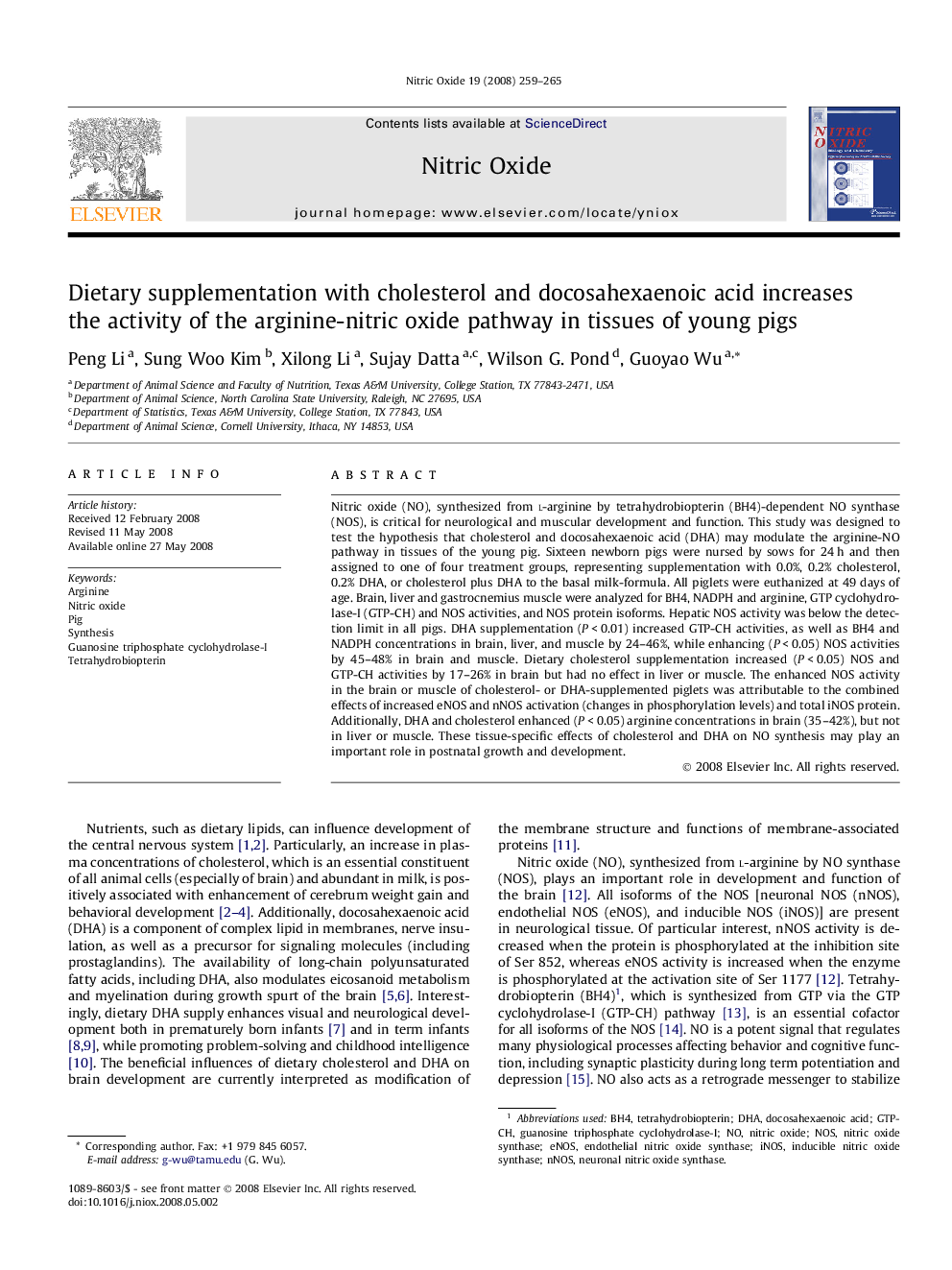| Article ID | Journal | Published Year | Pages | File Type |
|---|---|---|---|---|
| 2001710 | Nitric Oxide | 2008 | 7 Pages |
Nitric oxide (NO), synthesized from l-arginine by tetrahydrobiopterin (BH4)-dependent NO synthase (NOS), is critical for neurological and muscular development and function. This study was designed to test the hypothesis that cholesterol and docosahexaenoic acid (DHA) may modulate the arginine-NO pathway in tissues of the young pig. Sixteen newborn pigs were nursed by sows for 24 h and then assigned to one of four treatment groups, representing supplementation with 0.0%, 0.2% cholesterol, 0.2% DHA, or cholesterol plus DHA to the basal milk-formula. All piglets were euthanized at 49 days of age. Brain, liver and gastrocnemius muscle were analyzed for BH4, NADPH and arginine, GTP cyclohydrolase-I (GTP-CH) and NOS activities, and NOS protein isoforms. Hepatic NOS activity was below the detection limit in all pigs. DHA supplementation (P < 0.01) increased GTP-CH activities, as well as BH4 and NADPH concentrations in brain, liver, and muscle by 24–46%, while enhancing (P < 0.05) NOS activities by 45–48% in brain and muscle. Dietary cholesterol supplementation increased (P < 0.05) NOS and GTP-CH activities by 17–26% in brain but had no effect in liver or muscle. The enhanced NOS activity in the brain or muscle of cholesterol- or DHA-supplemented piglets was attributable to the combined effects of increased eNOS and nNOS activation (changes in phosphorylation levels) and total iNOS protein. Additionally, DHA and cholesterol enhanced (P < 0.05) arginine concentrations in brain (35–42%), but not in liver or muscle. These tissue-specific effects of cholesterol and DHA on NO synthesis may play an important role in postnatal growth and development.
